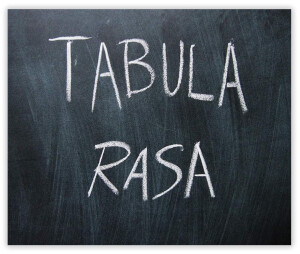We post news and comment on federal criminal justice issues, focused primarily on trial and post-conviction matters, legislative initiatives, and sentencing issues.

THANK A GOLDFISH
When a neighbor’s kid (who is now a successful real estate attorney) was in 7th grade, he entered a science fair project studying exactly how short a goldfish’s attention span might really be. I just recall that his conclusion was that it was pretty short.
For the sake of federal clemency, we should all hope that the American public’s focus is as brief.
President Biden granted clemency a week ago Friday to 2,490 people with drug offenses (including a few CARES Act releasees who were overlooked in the December 12, 2024, commutation of sentence for 1,499 people already on home confinement). That only raised a few of the predictable howls about unleashing violent criminals on the public (the fact than none had committed a violent crime being lost on those few critics).
Biden followed these with pardons on Sunday to members and staff of the House of Representatives January 6th Committee, Dr. Anthony Fauci, General Mark Milley, and Capitol police officers who testified about the January 6th riot. A chorus of voices from Trump supporters who wanted revenge – as well as a few thoughtful complaints that such pre-emptive pardons were a bad idea as a matter of policy – followed.
The January 19 clemencies included several other less controversial pardons. However, among the pardonees were members of Biden’s own family (which Biden cravenly only had the White House announce on Monday, January 20, after 11 a.m., as Biden sat in the Capitol rotunda awaiting President Trump’s inauguration).
Also in the final moments of his administration, Biden also commuted Leonard Peltier’s life sentence for a 1975 killing two FBI special agents on the Pine Ridge Indian Reservation to home confinement. Peltier, 80 years old and in ill health, has always maintained his innocence.
Monday night, Trump said Biden’s pardon of family members, whom he said were under unfair threat of investigation by Trump, “Now with that being said, it sets an unbelievable precedent, it creates poor precedent. But the precedent is unbelievable.”
Trump, however, eclipsed Biden’s “poor precedent” within hours of his own inauguration, issuing a sweeping clemency – consisting of 14 commutations of sentence and about 1,500 unconditional pardons – to people under indictment or convicted of crimes related to the January 6, 2021, insurrection at the United States Capitol.
The J6 clemency grant was “a last-minute, rip-the-bandage-off decision to try to move past the issue quickly, White House advisers familiar with the Trump team’s discussions told Axios, illustrating Trump’s light on his “unpredictable decision-making process” and showcasing his “determination to fulfill a campaign promise to his MAGA base — regardless of political fallout.”
 Despite months of the Trump campaign and transition team suggesting that people who engaged in violence on January 6 would not be getting clemency, Trump “vacillated” over whether to give a blanket pardon or a more detailed “targeted clemency.” However, as “Trump’s team wrestled with the issue, and planned a shock-and-awe batch of executive orders Day 1, ‘Trump just said: “F-k it: Release ’em all,”’ an adviser familiar with the discussions said,” according to Axios.
Despite months of the Trump campaign and transition team suggesting that people who engaged in violence on January 6 would not be getting clemency, Trump “vacillated” over whether to give a blanket pardon or a more detailed “targeted clemency.” However, as “Trump’s team wrestled with the issue, and planned a shock-and-awe batch of executive orders Day 1, ‘Trump just said: “F-k it: Release ’em all,”’ an adviser familiar with the discussions said,” according to Axios.
The White House described the blanket pardon as being necessary to “end a grave national injustice that has been perpetrated upon the American people over the last four years and begins a process of national reconciliation.” On Tuesday night, he said, “These people have served years of jail, and their lives have been ruined. They’ve served years in jail, and, if you look at the American public, the American public is tired of it.”
Not really. A Reuters/Ipsos poll the day after the J6 pardons were announced showed 60% of respondents opposed Trump’s action. An Axios focus group of independent voters opposed the action by an 83% majority.
Trump followed those pardons with one for Ross Ulbricht, the creator of the Silk Road marketplace, described by MSNBC as “one of the biggest illegal drug markets in American history.” The irony is that Trump has spent the past decade campaigning against the scourge of fentanyl and opioid addiction. Of course, the primary difference between the other drug traffickers in federal prison and Ulbricht is that those other guys did not take Bitcoin in payment.
On Wednesday, Trump pardoned two District of Columbia police officers who had been convicted of murder after chasing a 20-year-old man riding a moped. Trump said, ““They were arrested, put in jail for five years because they went after an illegal. And I guess something happened where something went wrong, and they arrested the two officers and put them in jail for going after a criminal.” As it turns out, however, the man was an American citizen and his “crime” was illegally riding his moped on a sidewalk.
The pardon looks suspiciously like a sop to the police unions, who were understandably upset that their President on the previous Monday had pardoned people who had punched, kicked, bear-sprayed and tased police officers defending the Capitol on January 6th.
On Thursday, Trump pardoned nearly two dozen anti-abortion activists who had been convicted of blockading abortion clinic entrances. “They should not have been prosecuted. Many of them are elderly people,” Trump said in the Oval Office. “This is a great honor to sign this.”
So what is the takeaway in all of this? As I explained this week to a CARES Act home confinee months away from release, who was inexplicably omitted from all commutation lists, (1) be sure to assault a cop during your offense; and (2) whatever your crime, be sure to accept payment in Bitcoin.
Condemnation for both Biden’s and Trump’s actions is loud. A Washington Post columnist wrote:
It’s debatable which president’s abuse of the pardon power on Monday — Joe Biden’s or Donald Trump’s — was more damaging. But that’s the nature of tit-for-tat escalations. The public argues about who started it and who did it worse. At the end of the process, constraints on the use of political power are gone and everyone is equally exposed.
Start with Biden’s extraordinary preemptive pardons for select political allies and family members that came down just before Trump’s inauguration. They aren’t even really pardons, because they don’t clear their recipients of specific offenses. They’re grants of immunity…
[T]he breathtaking scope of Trump’s amnesty — including immediate release for even the most violent members of the mob — is not defensible on grounds other than political spite and retaliation. Even his vice president seems not to have expected it. Deterrence against political violence in Trump’s second term in office has been meaningfully weakened. Those on the right inclined toward violence in the next four years have reason to wonder whether they will be punished.
Reason wrote, “Monday was a big day for presidential clemency, but that does not mean it was a good day. Both outgoing President Joe Biden and incoming President Donald Trump used that power in self-interested, short-sighted ways, sacrificing the public interest to benefit political allies and, in Biden’s case, family members.”
 Verdict argued, “Yet now, as with so much in contemporary politics, the return of President Donald Trump has changed how we think about the pardon power. The personal is political with Trump, only more so. With a President who views so much through the prism of himself, it is no surprise that we’re now talking about perhaps the most personal form of presidential power at the start of Trump’s second term rather than at the end.”
Verdict argued, “Yet now, as with so much in contemporary politics, the return of President Donald Trump has changed how we think about the pardon power. The personal is political with Trump, only more so. With a President who views so much through the prism of himself, it is no surprise that we’re now talking about perhaps the most personal form of presidential power at the start of Trump’s second term rather than at the end.”
For now, the presidential clemency power has become solely a political tool, the use of which may completely obliterate its traditional use as a tool of mercy applied to people whose offenses had no political veneer. We can only hope that like goldfish memory, public perception of presidential clemency dims rapidly enough so that it once again is applied to address individual defendants’ situations rather than to score political points or favor political supporters.
Dept of Justice, Office of Pardon Attorney, Clemency Warrants (January 24, 2025)
Reason, President Trump Comments on President Biden’s Pardons: “An Unbelievable Precedent” (January 21, 2025)
White House, Granting Pardons and Commutation of Sentences for Certain Offenses Relating to the Events at or Near the United States Capitol on January 6, 2021 (January 20, 2025)
Axios, “F–k it: Release ’em all”: Why Trump embraced broad Jan. 6 pardons (January 22, 2025)
Reuters, Exclusive: Trump starts new term with 47% approval; Jan. 6 pardons unpopular, Reuters/Ipsos poll finds (January 21, 2025)
MSNBC, Jan. 6 defendants weren’t the only controversial Trump pardon recipients this week (January 23, 2025)
Washington Post, The Biden-Trump pardons show collapsing executive restraint (January 21, 2025)
Reason, Biden and Trump Show Presidents How To Abuse Clemency (January 22, 2025)
Verdict, Five Ways of Looking at Presidential Pardons (January 22, 2025)
– Thomas L. Root


 Last week, we learned a little about what she is doing and got a hint that a clemency release is looming. In a Fox News interview with Lara Trump (which included a lot of fawning over the President), Johnson said, “President Trump had asked me to go find people like myself, and I brought many to the White House and President Trump gave those individuals a second chance…” She said that she “sent over 100 clemency and pardon petitions to the White House” and “46 people really were able to get a second chance in life…”
Last week, we learned a little about what she is doing and got a hint that a clemency release is looming. In a Fox News interview with Lara Trump (which included a lot of fawning over the President), Johnson said, “President Trump had asked me to go find people like myself, and I brought many to the White House and President Trump gave those individuals a second chance…” She said that she “sent over 100 clemency and pardon petitions to the White House” and “46 people really were able to get a second chance in life…” A batch of clemency grants may be on the horizon. Last week, The Wall Street Journal reported that clemency for some plain folks may be coming, “The president, according to a senior administration official, has taken a particular interest in the work of Alice Johnson, the pardon czar he appointed earlier this year,” the Journal said. “He regularly asks her, ‘Where are my pardons?’ The White House is expected to announce a substantial batch of pardons in the coming weeks, the official said.”
A batch of clemency grants may be on the horizon. Last week, The Wall Street Journal reported that clemency for some plain folks may be coming, “The president, according to a senior administration official, has taken a particular interest in the work of Alice Johnson, the pardon czar he appointed earlier this year,” the Journal said. “He regularly asks her, ‘Where are my pardons?’ The White House is expected to announce a substantial batch of pardons in the coming weeks, the official said.” Meanwhile, the pardon bazaar continues. Rumors are flying that Sean “Diddy” Combs is seeking a pardon to end his seamy federal sex crimes trial in New York, that former Minneapolis cop Derek Chavin could be pardoned for his federal civil rights conviction stemming the murder of George Floyd, that former Congressman George Santos is seeking a pardon to avoid a federal prison sentence imposed for fraud-related convictions, and that those perennial celebrity prisoner whiners Todd and Julie Chrisley are renewing their campaign for pardons from their federal fraud convictions.
Meanwhile, the pardon bazaar continues. Rumors are flying that Sean “Diddy” Combs is seeking a pardon to end his seamy federal sex crimes trial in New York, that former Minneapolis cop Derek Chavin could be pardoned for his federal civil rights conviction stemming the murder of George Floyd, that former Congressman George Santos is seeking a pardon to avoid a federal prison sentence imposed for fraud-related convictions, and that those perennial celebrity prisoner whiners Todd and Julie Chrisley are renewing their campaign for pardons from their federal fraud convictions.


























